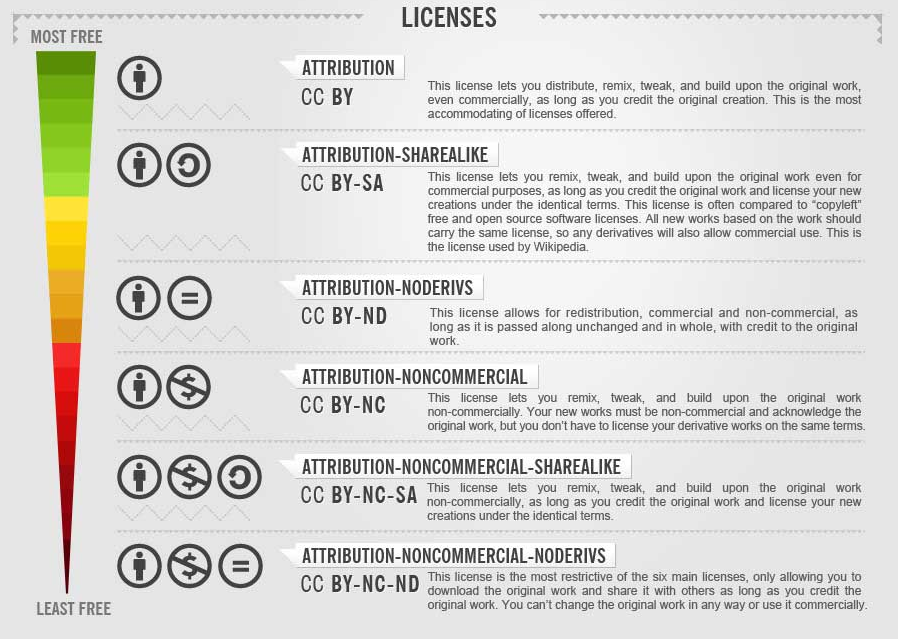Overview
Open Textbooks are textbooks that have been developed, funded, and published to be freely adapted, distributed, and used. They have typically been reviewed by faculty at other institutions and endorsed in other curriculum. This means that the author(s) was likely compensated for the original work and that there were costs associated with editing, formating, and publishing the book. However, the end result is a free, or mostly free, product available to students.
Open Content/ Open Education Resources (OER) is more difficult to define. This is more of a legal construct pertaining to copyright. As the name implies, the issue is content. Being "open" means that anyone can distribute and save the content. The "content" component refers to different types of licenses that govern concepts such as adding, modifying, reusing, revising, and updating the content. Most open content will use symbols similar to emojis to inform you what type (there are 6 types) of license is available.
Creative Commons are the specific legal licenses allowing others to modify your work. Open Education Resources require some form of creative commons license in order to be "open." Where readers are familiar with the copyright symbol of a single c within a circle, a creative commons license is designated by two c's within a circle.
Creative Commons Licenses:

Another way of looking at the licenses from the technology blog www.dontwasteyourtime.co.uk

Subject Guide

McNeese State University
Box 91445
Lake Charles, LA 70609